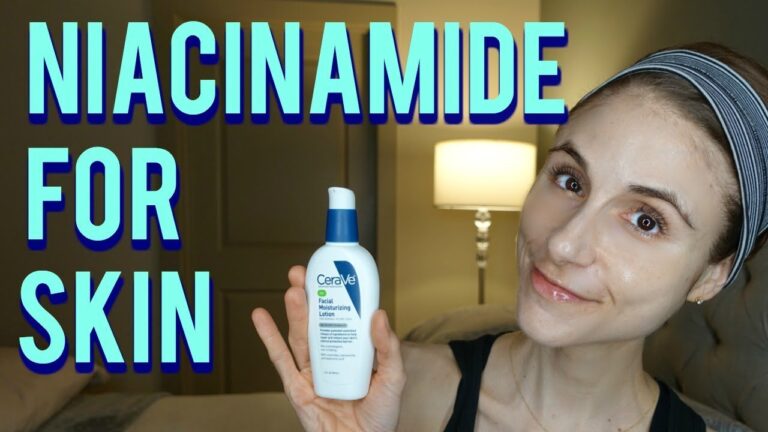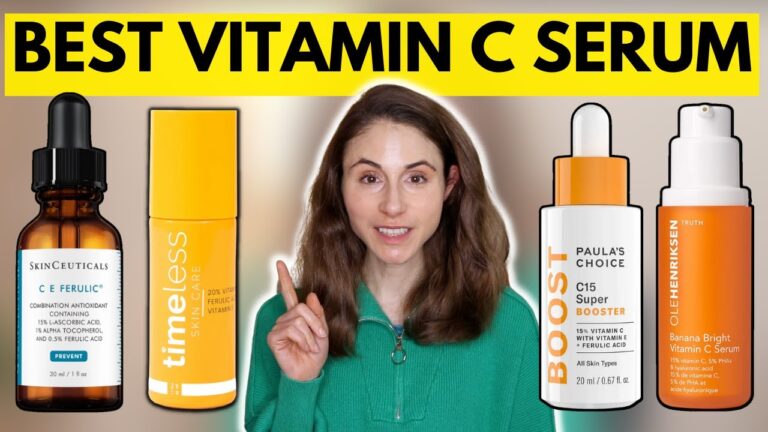Understanding retinol allergy: Symptoms, causes, and treatment options
Retinol Allergy: Signs, Symptoms, and What to Do
Retinol is a type of vitamin A used in many skincare products. It is known for its anti-aging benefits and ability to improve skin texture and tone. However, some people may develop an allergic reaction to retinol, which can cause discomfort and irritation on their skin. In this article, we will discuss the signs, symptoms, and what to do if you think you have a retinol allergy.
What is Retinol Allergy?
Retinol allergy is a condition where the body reacts to retinol, causing inflammation and irritation on the skin. Although it is rare, some people may develop an allergy to retinol due to their genetic makeup.
Signs and Symptoms of Retinol Allergy
The signs and symptoms of retinol allergy can vary from person to person, but some of the most common ones include:
1. Redness and swelling: Retinol allergy can cause redness and swelling on your face, especially around the application area.
2. Itching and burning: Your skin may also itch and burn due to the irritation caused by the retinol.
3. Dryness and flakiness: Retinol can also dry out your skin, which can lead to flakiness and peeling.
4. Hives and rashes: In some cases, retinol allergy can also cause hives and rashes on your skin.
What to Do If You Have Retinol Allergy?
If you suspect that you have a retinol allergy, the first thing you need to do is stop using any product containing retinol. You should also wash your face with mild, fragrance-free cleanser and apply a gentle moisturizer to soothe your skin.
If your symptoms are severe or do not improve after a few days, you should seek medical attention. Your dermatologist may prescribe a topical cream or ointment to reduce inflammation and redness. In some cases, you may also need to take oral antihistamines or corticosteroids to relieve your symptoms.
How to Avoid Retinol Allergy?
The best way to avoid retinol allergy is to test any new skincare product on a small patch of skin first. If you do not experience any adverse reaction after a few days, you can gradually increase the usage. It is also important to read the labels of skincare products carefully and avoid anything with retinol if you have a known allergy.
If you have sensitive skin, you may want to opt for natural skincare products that do not contain harsh chemicals or retinol. Some of the best natural ingredients for anti-aging and improving skin texture include vitamin C, hyaluronic acid, and peptides.
Products to Try for Retinol-Free Skincare
If you have a retinol allergy or sensitive skin, there are still many great skincare products you can try. Here are some of our top picks:
1. The Ordinary Niacinamide 10% + Zinc 1%: This serum contains vitamin B3 and zinc to minimize pores, reduce redness, and improve skin texture.
2. Cetaphil Daily Hydrating Lotion: This lightweight lotion is formulated with hyaluronic acid and provides long-lasting hydration for all skin types.
3. Paula’s Choice Skin Perfecting 2% BHA Liquid Exfoliant: This exfoliant contains salicylic acid to unclog pores, reduce fine lines, and improve skin texture.
Conclusion
Retinol allergy is a rare but uncomfortable condition that can cause redness, itching, and dryness on your skin. If you think you have a retinol allergy, stop using any products containing retinol and seek medical attention if your symptoms are severe. To avoid retinol allergy in the future, test any new skincare product on a small patch of skin first and read the labels carefully. Opt for natural skincare products if you have sensitive skin, and try some of our recommended products for retinol-free skincare.
Most searched products:
5 Surprising Ways The Ordinary Lash Serum Can Transform Your Lashes
Is Niacinamide an Active Ingredient in Skincare Products?
Does Sephora Support Israel? Answering Your Questions
The Ultimate Guide to Using The Ordinary Hydrochloric Acid: Benefits and Precautions
The Ultimate Guide to Choosing and Using the Best Hydrolic Acid Serum
Maximizing the Benefits: How Long Should You Leave Salicylic Acid on Your Face?
10 Proven Skincare Tips for Clearing Acne-Prone Skin
Discover the Benefits of Caffeine Serum for Your Skin
Unleashing the Power of Reddit: A Comprehensive Guide to r/PKA
10 Surprising Lactic Acid Uses You Need to Know About










